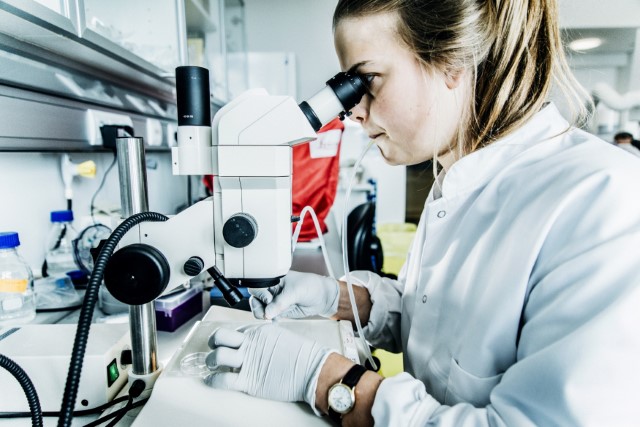The Novo Nordisk Foundation has awarded DKK 94.5 million for research within clinical and translational research as part of its Research Leader Programme. The Programme aims to ensure that the best research leaders have continuity and stability in their research, giving them the opportunity to pursue ambitious and innovative projects and ideas.
Mental disorders are among the most costly and debilitating disorders in terms of personal suffering for those affected, their relatives and society in general. Identifying disease mechanisms and possibilities for intervention before onset of illness will therefore be extremely valuable. About 55% of the children born to parents with schizophrenia, bipolar disorder or severe depression will develop the same disorder as their parents or other mental disorders during early adult life. A new research project will investigate whether this can be explained by environmental and genetic factors.
In a different project, researchers focus on acute exacerbation of chronic obstructive pulmonary disease, which is a leading cause of death among people with this disease. Persons who recover from acute exacerbation often have mental disorders such as anxiety and depression and this worsens their self-rated health. Biological airway inflammation is known to play a role, but in a subset of patients, more specific inflammation plays a key role. However, little is known about the mechanism for this effect. The research project will focus on whether different bacterial species living in the airways, if reduced in number or even the synergy of microorganisms, plays a central role.
In a third project, researchers aim to develop and improve the diagnostic work-up of oropharyngeal cancer by using transoral ultrasound. The incidence of oropharyngeal cancer has increased significantly worldwide in recent decades. The trend is based on increasing oral exposure to human papillomavirus (HPV) and the development of HPV-positive squamous cell carcinoma among younger and non-smoking patients. HPV-positive oropharyngeal cancer is typically small tumours that arise in the palatine and lingual tonsils, which may hinder visualization during the clinical exam and traditional radiographic imaging. Early treatment is key for improving survival of people with these rapidly growing tumours; this is why fast-track head-and-neck cancer clinics aim to ensure diagnosis within 2 weeks of referral.
These projects are three of 10 ambitious research projects that are receiving grants of nearly DKK 10 million each from the Novo Nordisk Foundation as part of its Research Leader Programme. The grants are awarded for clinical and translational research with the overall aim of promoting and strengthening Danish clinical and translational research at a high international level and to stimulate the continued development of excellent clinical research leaders. The Foundation awards the grants to excellent research leaders in Denmark.
The 5-year grants aim to give the researchers continuity and stability in their research and thereby give them the opportunity to pursue ambitious and innovative projects and ideas, dare to take a different approach and think in new ways. This takes time, but significant new discoveries are often made in these areas.
Grants under the Programme were awarded in each of the following categories.
- Clinical Emerging Investigators. Young promising research leaders who want to establish or are in the process of establishing their own research group and research profile.
- Borregaard Clinical Ascending Investigators. Talented, established research leaders at the associate professor level.
- Clinical Distinguished Investigators. Professors of the highest international standing and calibre.
The grants are awarded in open competition based on the applications submitted. The Foundation’s Committee on Clinical and Translational Research assessed all 43 applications received.
The Research Leader Programme supports talented research leaders at all stages of their careers and aims to support the continuing development of top researchers. The Foundation just announced that it has awarded a total of DKK 400 million for 41 research leaders under the Programme. Read the news article here
Grants under the Programme are awarded within four scientific fields: endocrinology and metabolic research; biotechnology-based synthesis and production research; clinical and translational research; and bioscience and basic biomedical research.
The 2020 grant recipients within clinical and translational research are as follows.
Clinical Emerging Investigators

Johan Burisch, physician, PhD
Gastrounit, Amager and Hvidovre Hospital
Project title: The Influence of Genetics, Immunity and Microbiome on the Prognosis of Inflammatory Bowel Disease – the IBD Prognosis Study
Grant amount: DKK 9,778,800
Johan Burisch says: “Inflammatory bowel diseases (IBD), including Crohn’s disease and ulcerative colitis, are chronic diseases caused by abnormal inflammation in the intestinal tract. Patients are often diagnosed in early adulthood and face a lifetime of suffering from a disease that currently has no cure. It is of major importance to identify patients at an early stage who later develop aggressive disease to offer these patients close follow-up and individually tailored medication. Currently, we do not understand why some patients experience a mild disease course and others suffer from aggressive disease. In this project, we will combine clinical, genetic, gut microbiome and serological information to be able to predict – at diagnosis – which disease path a newly diagnosed young patient will take and thereby enable physicians to choose the right treatment for the right patient and improve their disease course.”
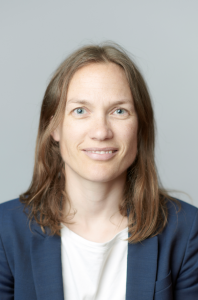
Maja Thiele, associate professor
Department of Medical Gastrointestinal Diseases, Odense University Hospital
Project title: DECIDE: Decision Aids and Monitoring Biomarkers in Liver Disease
Grant amount: DKK 9,994.249
Maja Thiele says: “DECIDE’s ambition is to reduce death and disease from alcohol-related and non-alcoholic fatty liver disease. We will do this by combining clinical research with interdisciplinary efforts from basic science, narrative medicine and patient involvement. The goal is to aid the physicians’ decisions about their patients by providing accurate, efficient and easily interpretable tests and to aid patients’ decisions about their own health and well-being, in the understanding that human health encompasses much more than laboratory tests. Fatty liver disease from alcohol, obesity and type 2 diabetes is present in 25% of the population and each year causes 3.3 million deaths worldwide. Despite this, we still lack accurate decision tools that can be used in primary care to diagnose and monitor people at risk of developing life-threatening liver complications. We will therefore conduct a longitudinal study of 5,500 people designed to develop and validate such tests.”
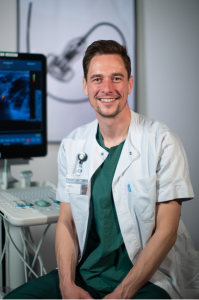
Tobias Todsen, resident physician, PhD
Department of Otorhinolaryngology, Head and Neck Surgery & Audiology, Rigshospitalet, Copenhagen
Project title: Transoral Ultrasound in Detection and Staging of Oropharyngeal Cancer
Grant amount: DKK 8,045.969
Tobias Todsen says: “The incidence of oropharyngeal cancer has increased due to HPV–related cancer developed by younger and non-smoking patients. Precise imaging is crucial for optimal treatment, and the current diagnostic workup with magnetic resonance imaging (MRI) has some limitations, which is why additional diagnostic procedures in general anaesthesia are often needed. Ultrasound provides rapid and high-resolution imaging, which may improve the visualization of oropharyngeal cancer compared with MRI by a new method of performing the ultrasound examination directly on the tumour site through the mouth. In this research project, we will explore whether this new technique with surgeon-performed transoral ultrasound can be used as cost-effective imaging to improve oropharyngeal cancer detection and staging.”
Michael Sørensen, physician, PhD
Department of Hepatology and Gastroenterology, Aarhus University Hospital
Project title: Multi-modal Liver Imaging: an Approach towards Individualized Treatment
Grant amount: DKK 8,506,500
Michael Sørensen says: “The number of people with impaired liver function and liver disease is increasing mainly due to obesity and non-alcoholic fatty liver disease. This leads to more patients with scar tissue in the liver, ranging from mild changes (fibrosis) to established cirrhosis, as seen in patients with severe alcohol abuse. This may lead to cancer in the liver. Moreover, we have become increasingly aware of genetic diseases affecting the liver’s ability to excrete substances in the bile, which may also cause structural changes and cancer. The aim of the present project is to develop non-invasive imaging techniques for individual evaluation of the liver in patients with liver disease. We hope to be able to spare patients the need for biopsy of the liver, to improve diagnosis and staging of liver cancer, to improve the distinction between benign and malignant liver foci and to evaluate the functional consequences of genetic disorders affecting the secretory function of the liver.”
Borregaard Clinical Ascending Investigators
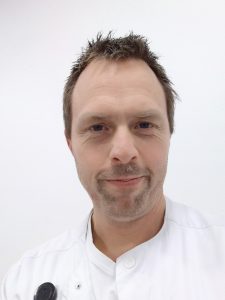
Jens-Ulrik Stæhr Jensen, associate professor
Section of Respiratory Medicine, Department of Internal Medicine, Herlev and Gentofte Hospital
Project title: Understanding and Managing Chronic Obstructive Lung Disease Via Time-updated Biomarker Strategies, Comorbidity Control and Microbiome Analysis
Grant amount: DKK 9,943,600
Jens-Ulrik Stæhr Jensen says: “Patients with severe chronic obstructive pulmonary disease (COPD), still do not have a good prognosis. Medical therapy is by large, unchanged in many years. Likewise, the understanding of the mechanisms that lead to worsening of the disease is not sufficient. Traditional medicines include corticosteroids, which may increase the risk of diabetes, osteoporosis and infections. We will test two new strategies of preventing acute flares in COPD:
1) one in which hypertension in the lung circulation is controlled, thereby attempting to improve the stability in the disease and preventing flares in the disease; and
2) another strategy in which we will use a blood sample (biomarker) to substantially reduce the number of dosages of corticosteroids, thereby aiming to reduce the serious side-effects these drugs sometimes carry.
Additionally, we will explore the biological and infectious backgrounds for acute flares in the disease and the consequences of these mechanisms for other bodily tissues and organs.”
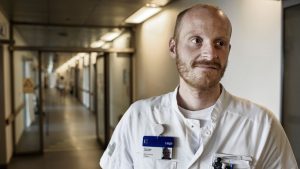
Emil Fosbøl, staff specialist, PhD
Department of Cardiology, Rigshospitalet, Copenhagen
Project title: Improving Outcomes for Patients with Valvular Heart Disease: Building an Evidence Base through Novel High-quality Data
Grant amount: DKK 8,986,000
Emil Fosbøl says: “Cardiovascular health relies on normal function of the heart valves. Dysfunction of the heart valves, called valvular heart disease, results in heart failure, and patients experience shortness of breath, fatigue and fluid retention. The risk of death is also higher with valvular heart disease. In recent decades, valvular heart disease has become more common, but solid knowledge is lacking on a national scale. A form of valvular heart disease called infective endocarditis is a disease in which bacteria destroy one or more heart valves, and 20% of patients die in the first 30 days after diagnosis. To improve prevention, treatment and prognosis, we need better dedicated data and on a nationwide scale. This project will collect detailed data on valvular heart disease and establish a dedicated registry of patients with endocarditis. We will examine how diagnostics and treatments (especially surgery) can be improved to help patients. This study will provide data-based evidence for improving clinical outcomes for patients with valvular heart disease.”
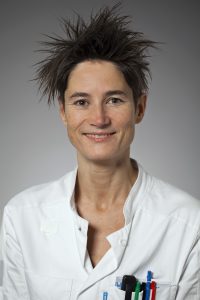
Sisse Ostrowski, PhD, DMSc, associate professor
Department of Clinical Immunology, Rigshospitalet and Department of Clinical Medicine, University of Copenhagen and Rigshospitalet
Project title: Immunologic Phenotyping as a Diagnostic Tool for Personalized Medicine in Patients Undergoing Immune-modulating Interventions
Grant amount: DKK 9,652,809
Sisse Ostrowski says: “Many patients undergo treatments that modulate the immune system, thereby being at risk for complications, poor treatment response and poor outcome. There is an unmet need for immunologic methods that can reveal the immunologic mechanisms contributing to this risk, to tailor patient care. In three work packages, this project will develop, validate and implement immunologic methods for immunologic risk profiling and mechanism-based tailored care in patients undergoing cancer surgery, immunotherapy, chemotherapy or radiation therapy for lung cancer and stem cell transplantation, with healthy individuals as reference. The baseline risk for complications, poor treatment response and poor outcome will be determined in similar patient groups based on historic data, to reveal the additional risk associated with specific immunologic profiles. The immunologic risk profiles and algorithms for interventions will be tested in clinical studies, with implementation of algorithms, with proven safety and efficacy.”
Clinical Distinguished Investigators
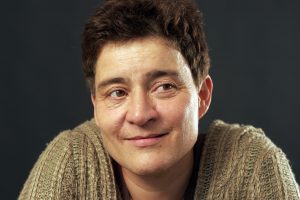
Merete Nordentoft, professor
Region Hovedstadens Psykiatri
Project title: The Danish High Risk and Resilience Study – VIA 15. A Longitudinal Study of Children Born to Parents with Schizophrenia, Bipolar Disorder and Controls
Grant amount: DKK 10,000,000
Merete Nordentoft says: “The Danish High Risk and Resilience study – VIA 7 was established in 2013–2015 as a representative cohort of 522 7-year old children with parents with schizophrenia or bipolar disorder and control parents. Symptoms, neurocognition, motor function, language and general well-being were thoroughly assessed at age 7 years and again at age 11 years in the VIA 11 study. Magnetic resonance brain scanning was conducted in VIA 11. In VIA 7, we found that especially children of parents with schizophrenia had more symptoms, poorer social, neurocognitive and motor functioning compared with children in control families. With the Danish High Risk and Resilience Study VIA 15, we can investigate whether these poor outcomes are worsened, unchanged or improved. Magnetic resonance scans in VIA 11 and VIA 15 will for the first time make it possible to study structural and functional brain changes during disease formation. We will get better insight into aetiology, disease formation and disease trajectories, and we will be able to identify possibilities for early intervention.”
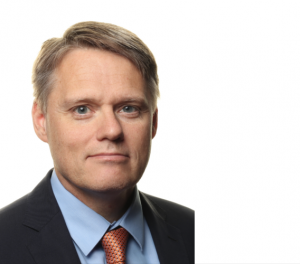
Finn Gustafsson, professor
Department of Cardiology, Rigshospitalet, Copenhagen
Project title: Advanced Heart Failure: Screening, Evaluation and Optimization of Management
Grant amount: DKK 9,690,000
Finn Gustafsson says: “Heart failure (HF) is a major health problem. Recent years have seen a great improvement in treatment for HF. Nevertheless, 5–10% of patients with HF progress to advanced HF, which is a severe disease. Patients have a high risk of death and poor quality of life. Currently, identifying the patients who are at high risk of advanced HF is a challenge. Screening needs to be improved to improve prognosis. Obtaining more knowledge on how to manage symptoms and optimize treatments is important. This project will test new strategies to screen for advanced HF to aid the early identification of patients at risk. The project will examine cross-talk between the heart and the kidneys and gut that might contribute to progression of advanced HF. To improve treatment, this project will examine the efficiency and optimization of new and current treatments. The research project targets the most symptomatic and vulnerable patients with HF to gain knowledge for direct use in clinical practice.”
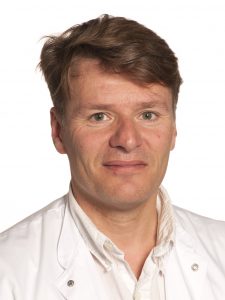
Claus Højbjerg Gravholt, professor
Department of Endocrinology and Department of Molecular Medicine, Aarhus University Hospital
Project title: Deciphering the Impact of a Missing or Extra X Chromosome
Grant amount: DKK 10,000,000
Claus Højbjerg Gravholt says: “Turner syndrome (TS) and Klinefelter syndrome (KS) are rare genetic diseases, with either lacking or extra X chromosomal material. The molecular basis for TS and KS remains an enigma. Results show an altered global epigenetic profile of TS and KS. The hypothesis for the study is that different genetic regulatory mechanisms are involved, underlying the characteristic traits of both syndromes. The study aims to determine the genetic mechanisms underlying the development of TS and KS – the clinical presentation of the genetic abnormalities. The researcher will study human material from different tissues as well as during different stages of development and will use a zebrafish model to study candidate genes further. The study will characterize both the epigenome (the addition of methyl groups to part of the DNA) and the transcriptome (RNA) of relevant tissues through development. Detailed study of similarities and differences in epigenetic programming and RNA expression between TS and KS will be established and candidate genes further evaluated in a zebrafish model.”
About the Novo Nordisk Foundation
The Novo Nordisk Foundation is an independent Danish foundation with corporate interests. It has two objectives: 1) to provide a stable basis for the commercial and research activities of the companies in the Novo Group; and 2) to support scientific, humanitarian and social causes.
The vision of the Foundation is to contribute significantly to research and development that improves the lives of people and the sustainability of society. Since 2010, the Foundation has donated more than DKK 25 billion (€3.3 billion), primarily for research at public institutions and hospitals in Denmark and the other Nordic countries. Read more at www.novonordiskfonden.dk/en.
Further information
Kristian Winge, Senior Scientific Officer, Biomedicine & Health Sciences, kwi@novo.dk

